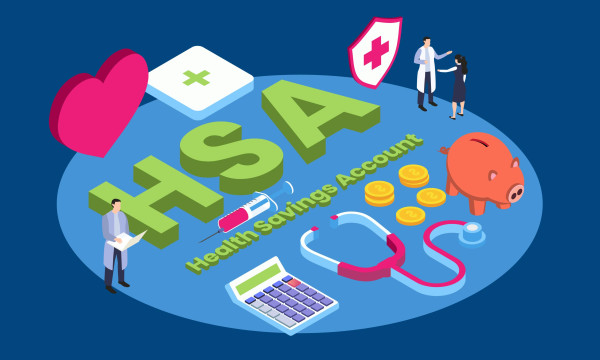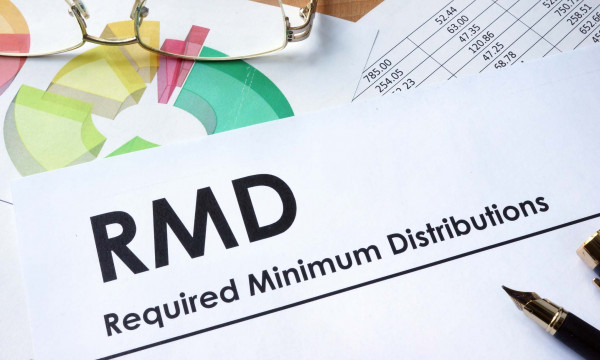HSA Day: Celebrating the benefits of health savings accounts

If you’re looking for reasons to celebrate HSA Day this year — other than commemorating a savings vehicle offering triple tax savings while helping Americans save for healthcare expenses — we’re here to get you in the spirit of celebration.
Health savings accounts, or HSAs, have become popular employee cafeteria plans thanks to their versatility, portability, and the fact that they’re effective savings accounts for the working class and retirees to use for health expenses.
So let’s all don our party hats and discuss some really great reasons to celebrate HSA Day.
A boon as health costs rise and earnings plateau
From 2006 to 2016, the amount Americans spent on out-of-pocket healthcare rose by 53%. The pockets being pulled from for healthcare costs hadn’t gotten any fuller, either, as health insurance premiums rose 200% over workers’ earnings in a similar decade span from 2008 to 2018. It just makes good sense to use HSAs to offset rising healthcare expenses. We can all celebrate having that option!
HSAs can relieve healthcare hardships
According to recent studies by the Kaiser Family Foundation (KFF), two-thirds of Americans worry about how they would pay for an unexpected medical bill. That fear is there for a good reason: One-third of insured Americans have received an unexpected medical bill within the last two years. The good news is that if you have money socked away in an HSA, you can have peace of mind knowing those unexpected medical expenses are in an account waiting to be used.
HSAs contribute to self-care
The KFF also shared in their studies that 60% of adults delay medical appointments and routine care because of cost, and 29% avoid or postpone filling prescriptions. This is a recipe for disaster since preventive care is crucial to well-being. Having money stowed away in an HSA can take the sting out of paying for routine care and prescriptions. Keep yourself on budget by swiping your HSA card at the clinic or pharmacy and leaving the money in your personal account for other things.
Employers benefit from HSAs too
A Prudential report from 2019 showed that 30% of American workers report that financial stress affects their job performance. Employers who add HSAs to their benefits offerings can alleviate their employees’ stress and benefit from their increased productivity.
HSAs are for savings AND saving
Did you know HSAs can save you 30% or more on healthcare expenses? When your money goes in via pre-tax payroll deduction, you avoid state, federal, and FICA withholdings on those funds, and your taxable income is decreased. In addition, your account can grow tax-free, and no taxes are assessed when you withdraw the funds for qualified medical expenses.
Unmatched flexibility
Other tax-deferred savings accounts are much more stringent. For example, a 401(k) is mostly for distribution during retirement — with a few exceptions — but an HSA can be used for current-day medical expenses and retirement expenses. You can change your contribution amounts throughout the year, take your account with you when you change jobs, and set beneficiaries, and you get a few extra months at the beginning of a new year to make prior-year contributions.
If you don’t use it, you don’t lose it
Unlike other cafeteria plans, your HSA balance can stay in the account for as long as you want to keep it there. Because there’s no deadline for using the funds, if you want to stow them in the account long-term, even well into retirement, that’s your prerogative. You have the option to invest* them in mutual funds within the HSA to hopefully net some growth on the funds too.
HSAs can be used for a variety of expenses
Your HSA funds can be used for qualified medical, dental, and vision expenses, COBRA premiums, Medicare premiums (but not for Medicare supplement policies), and portions of long-term care insurance premiums. Having the funds in your HSA during your working years is great, but having that nest egg for your retirement years can really help out during those fixed-income years.
HSA best practices
There’s no bad way to use an HSA to save for medical expenses, but here’s a quick bulleted overview of the good, better, and best ways to contribute and use them.
- GOOD: Save to cover your typical annual medical expenses.
- BETTER: Save to cover your annual deductible and out-of-pocket maximum.
- BEST: Contribute the maximum limit to build a cushion for emergencies, accidents, and retirement healthcare expenses.
Need some more pointers about how to make the most of the mighty HSA? Your friends at Omnify are here to help, so don’t hesitate to reach out.
|
Learning Center articles, guides, blogs, podcasts, and videos are for informational purposes only and are not an advertisement for a product or service. The accuracy and completeness is not guaranteed and does not constitute legal or tax advice. Please consult with your own tax, legal, and financial advisors.




